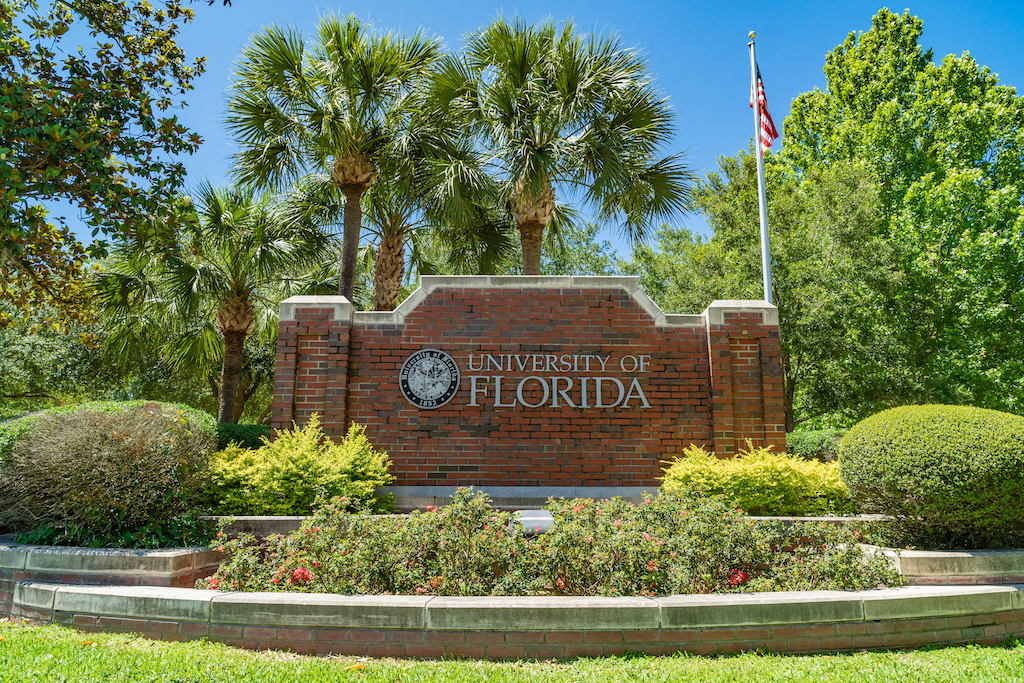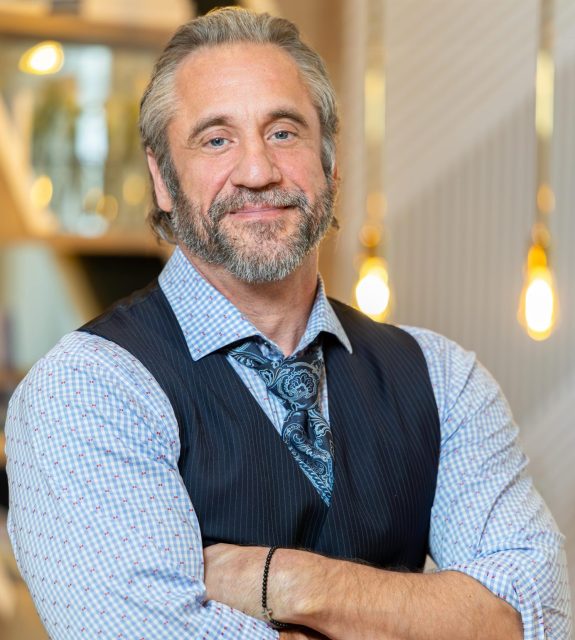
In a highly unusual move, two of Florida’s biggest universities are pushing back against the DeSantis administration over its orders to shut down pro-Palestinian student organizations on campus, citing lawyers’ advice warning that administrators could face personal legal liability if they followed what might be an unconstitutional directive.
Gov. Ron DeSantis said during last week’s Republican presidential primary debate in Miami that he had shut down the chapters of Students for Justice in Palestine at the state’s flagship school, the University of Florida, and the University of South Florida in Tampa. That was not true.
“I already acted in Florida,” said DeSantis, who has made strong support for Israel part of his GOP presidential campaign. “We had a group, Students for Justice of Palestine. They said they are common cause with Hamas. They said, ‘We’re not just in solidarity. This is what we are.’ We deactivated them. We’re not gonna use tax dollars to fund jihad.”
Behind the scenes, the two universities sought their own legal opinions over the Oct. 27 directive from the State University System, which said in consultation with DeSantis it was ordering the schools to deactivate the student chapters. The two universities have declined to answer questions about the groups on campus but have quietly allowed them to remain operational.
The legal opinions the schools sought warned that campus officials could face personal liability for following the governor’s orders. Citing those opinions, the universities pushed back against Tallahassee. Florida’s chancellor, who oversees the state’s public universities, has sought additional legal advice on its own to move forward.
Chancellor Ray Rodrigues described the new developments in remarks Thursday in Orlando at the meeting of the university system’s Board of Governors — the day after DeSantis said at the debate that the groups had already been shut down.
“We have reviewed those opinions, and in short, they raise concerns about potential personal liability for university actors who deactivate the student-registered organization,” he said.
Student leaders and the faculty adviser for the group at the University of Florida didn’t immediately respond to phone messages and emails.
It wasn’t clear whether Rodrigues could face liability for issuing the shutdown order. He said that, as a possible alternative to a shutdown, he would ask the groups this week to affirm that they reject violence, reject they are part of Hamas and they will follow the law.
The episode marked an extraordinary case of government employees in Florida failing to follow without question the orders of a populist governor re-elected last year by the largest margin in more than 40 years. It could reflect early signs of waning political influence for DeSantis as a lame duck chief executive as he continues to run in polls far behind former President Donald Trump in the presidential primary race.
When the former UF president, Kent Fuchs, said he was powerless to resist some directives from DeSantis, he was derided as a president in Gator Nation who wouldn’t bite.
The surprise explanation last week solves the mystery behind the chapters of the student groups. At the University of Florida, the group was still listed last week as operational on the school’s directory of student organizations. UF has the largest population of Jewish students among any university in the United States.
At UF, the pro-Palestinian student group organized a discussion in a classroom on Oct. 13 with other pro-Arab campus groups to discuss what they described as Israel’s oppression for generations over Palestinians in the region and complained that news organizations appear to favor Israel in their coverage.
UF’s newly inaugurated president, Ben Sasse, said last week his office hadn’t shut down any student organizations but didn’t explain further. The school hasn’t responded to inquiries asking to clarify the issue, including messages Friday. UF has not yet provided a copy of the legal advice it cited, in response to a request Thursday under Florida’s public records law.
“Obviously student organizations couldn’t be involved in something like material support for terrorism, but students at the University of Florida can have any number of positions about pro- Israeli politics or anti-Israeli politics,” Sasse said last week. “We vigorously defend both free speech, and we’re going to invest university resources in guaranteeing the safety of our students.”
The DeSantis administration objected to a statement of support from the groups’ national parent organization that it was “part of” the resistance against Israel. Florida said that violated a state law against offering material support to terrorists. Legal experts said the order was almost certainly unconstitutional. They said those terrorism laws don’t prohibit independent advocacy or expression but outlaw specific conduct that includes expert advice or assistance.


















